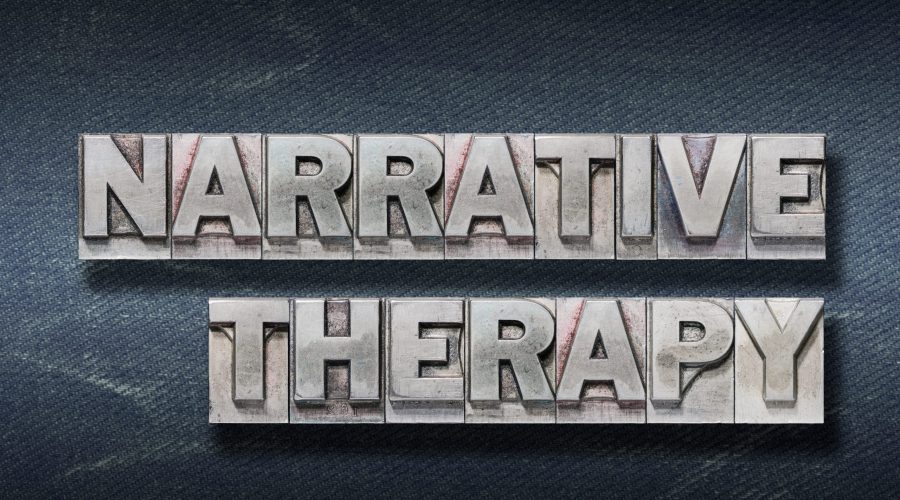Narrative Therapy Treatment
Separating yourself from your problems is the key to building a more confident sense of self and creating healthy, productive responses to the challenges you face in life. If you make a mistake and see yourself as a failure because of it, you will be too busy contending with your own shame and self-judgment to learn from the experience. However, if you acknowledge your mistake as an experience rather than a defining trait, you can use it to grow into a better version of yourself. This is the core concept that defines Narrative Therapy Treatment.
What Is Narrative Therapy?
Narrative Therapy is a form of treatment that helps people take a step back from their negative experiences, gain a healthy level of separation, and view their life with greater clarity. Because of this, Narrative Therapy is a useful approach for anyone who experiences overwhelming challenges or negative thoughts or emotions. At Blair Wellness Group, we might use Narrative Therapy to treat Mental Health Conditions such as Anxiety Disorders, Depressive Disorders, Eating Disorders, PTSD, attachment issues, or grief and loss.
Techniques of Narrative Therapy
Narrative-based treatment uses several techniques and exercises to help you explore events from your own life, separate yourself from negative experiences, and deconstruct the narrative into smaller, more approachable issues.
Creating a Narrative
Through Narrative Counseling, Licensed Clinical Psychologists at Blair Wellness Group help patients put the story of their lives into a narrative that they can explore. This allows patients to find their voice as they speak about their lives. It also helps create an objective perspective of past events, relationships, and other life experiences.
Externalizing Experiences
Distancing yourself from your narrative and observing your life objectively is a process known as externalization. Externalizing your own experiences gives you a clearer, more productive view of negative thoughts or behaviors. This allows you to focus on changing those thoughts and behaviors rather than blaming yourself for them.
Deconstructing Themes
Narrative Therapy gives you the space and knowledge to break your narrative into smaller parts. This helps you identify dominant themes and observe how ongoing problems continuously influence your life. Deconstruction makes these issues more approachable for you and your Licensed Clinical Psychologist at Blair Wellness Group to navigate.
Empowering Change
Narrative Therapy teaches patients that their stories—and, therefore, their lives—are ever-changing. You are not stuck where you are; you have the power to make decisions, change your behavior, and create new experiences for yourself. By empowering change, Narrative Therapy teaches patients to challenge their own stories, face their own problems, and make positive changes.
Learn more about how Narrative Therapy Treatment can lead to positive, lasting change in your life when you work with Blair Wellness Group today. Contact our team and book your appointment with a Licensed Clinical Psychologist to improve your Mental Health and achieve your clinical goals through Narrative Therapy and other tailored treatments.
Other Service
-
Binge Eating DisorderBinge Eating Disorder
-
Anorexia NervosaAnorexia Nervosa
-
Bulimia NervosaBulimia Nervosa

Office Hours
Mon - Fri :
7 am - 11 pm
Sat - Sun :
9 am - 10 pm
Techniques of Narrative Therapy

Creating A Narrative

Externalizing Experiences

Deconstructing Themes

Empowering Change
Our Core Values
Discover effective solutions for addiction at Blair Wellness Group today. Call us at 310.999.4996 to schedule an appointment. We welcome patients from Beverly Hills, Los Angeles, Irvine, Newport Beach, and the surrounding areas.

Reliable
At Blair Wellness Group, we are here to meet your clinical needs at any time.

Dedicated Support
Our team provides the compassionate care, support, and necessary interventions needed for our clients to achieve their goals and clinical objectives.

Experience
With 15+ years of clinical experience in providing an array of psychological services, we are committed to helping our patients achieve their goals.

Professional Team Support
We are dedicated to the well-being of our clients and have the extensive training to provide them with high-quality care.
Looking for a Local Psychologist?
Our Psychologists and Therapists in Los Angeles, Beverly Hills, Irvine, Newport Beach, and the surrounding areas offer evening and weekend appointments for our Concierge patients. Contact us today to discover how Blair Wellness Group can help you overcome personal or professional challenges and mental health disorders, such as depression, anxiety, relationship challenges, addiction issues, and personality disorders.











